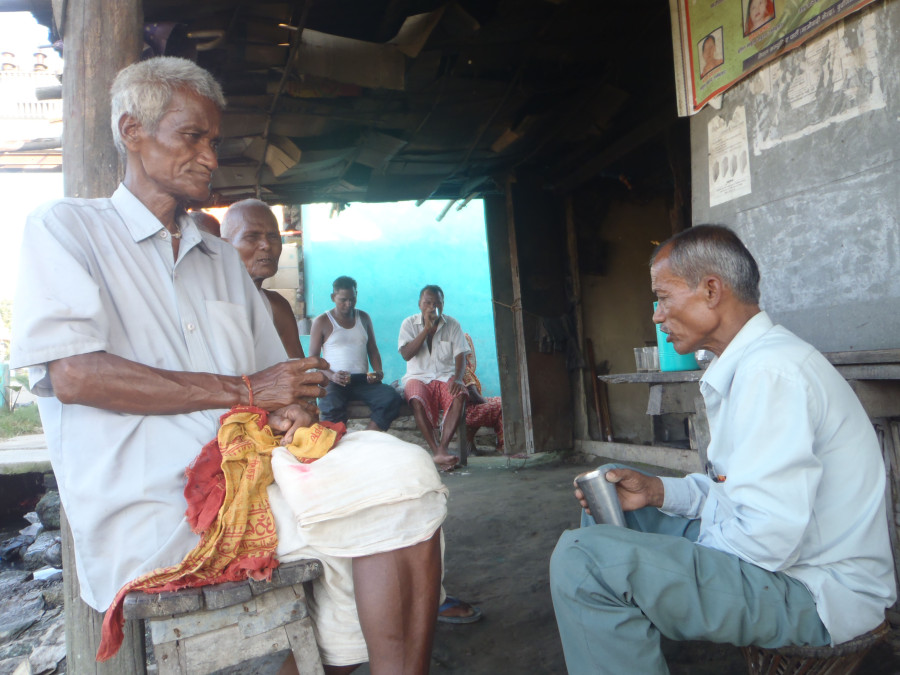Miscellaneous
Latest political development sends ripples to grassroots
The recent decision by leftist political parties to forge alliance ahead of the upcoming elections of Federal Parliament and Provincial Assembly has created waves in grassroots level.
Jitendra Sah
The recent decision by leftist political parties to forge alliance ahead of the upcoming elections of Federal Parliament and Provincial Assembly has created waves in grassroots level.
After numerous democratic movements in the country, the national politics has come to an interesting juncture, says 54-year-old farmer Tilakram Majhi of Budhiganga Rural Municipality in Morang district.
“It is good that parties have finally understood that unity is better than fragmentation,” said Majhi, “Now, parties should be careful about selecting a good candidate in elections,” Majhi added. He felt that the parties have finally risen above communal politics.
Majhi reckons that the upcoming border demarcation issues and constitution amendment will now be the common agenda of all the political parties.
The recent political developments and upcoming elections slated for November 26 and December 7 have grabbed the attention of these villagers who are busy preparing for upcoming festivals—Tihar and Chhath.
However, the people in rural area are not upbeat with the latest development. They think that the alliance is a new political drama to deceive the people.
Although these villagers lack deep political understanding, the country’s political turn has spurred curiosity among them. Conversation on political issues has become common at tea shops and other public places.

“Call it unity, alliance or group, if it benefits the public it will be welcomed,” said Nanulal Sardar of Sukchuk in Budhiganga-5.
Labour by profession, Sardar said that it is futile to speculate what’s going on in the minds of our leaders. “It will be very unfortunate if all this reconciliation is just for the personal benefit of few leaders,” said Sardar.
“If our leaders, who do not seem to have a promising commitment towards the country, have changed their minds and have positive intention, it is really a welcome move,” said Baccharam Chaudhary of Budhiganga-3.
Baccharam, an educated and hardworking tea shop operator, expressed his concerns over the corruption and favoritism in Nepali politics.
“What kind of democracy is ours where a poor cannot afford to run in election,” said Chaudhary, giving example of neighboring country India where a tea seller became the prime minister.
Locals smell rat on the recent unity among political parties. “After all they are the same leaders. How can we expect them to maintain harmony with others who could not even manage factionalism in their own party,” said a local entrepreneur Ramesh Chaudhary.
Ramesh termed the recent harmony among parties as just an election-oriented strategy. He says that if parties fail to bring expected votes, leaders will start pointing fingers at each other.
However, the changed political context has not brought any excitement to some villagers. They are neutral about the ongoing political development in the country. “Whatever big talk our leaders make, we cann't make our ends meet without toiling hard,” said a local labourer Hrishi Dev.
Thirty-year-old Rekha Harijan says that parties should rather collaborate to uplift the marginalised and poor people. “Leaders only think about how to remain in power by resorting to various techniques,” she said, “What can we expect from them [leaders] who haven’t been able to resolve the citizenship issue?”
Sociologist Mukesh Singh says that it was normal for villagers to enthusiastically talk about politics as the public want stability in the country.
“Whoever takes the reign of the country the government should not change in every six months,” he said. “Political stability is indispensable for social development and achievements,” he added.
Singh said that there are ample of reasons to suspect the new alliances as they have not talked about health, education and public life.
“Most leaders from village to city lack moral ground. The disputed medical colleges have exposed the leaders of major parties,” said Singh, adding, “The country will plunge into a grave crisis if the alliance is just a ploy to cover the wrongdoing of leaders and to open private medical colleges.”




 9.89°C Kathmandu
9.89°C Kathmandu










